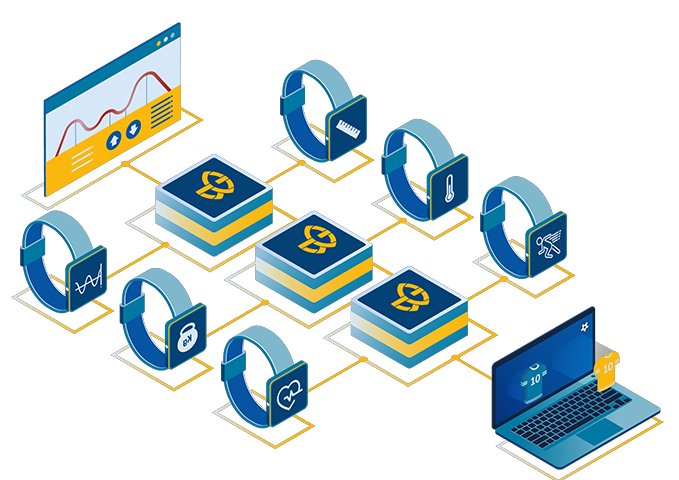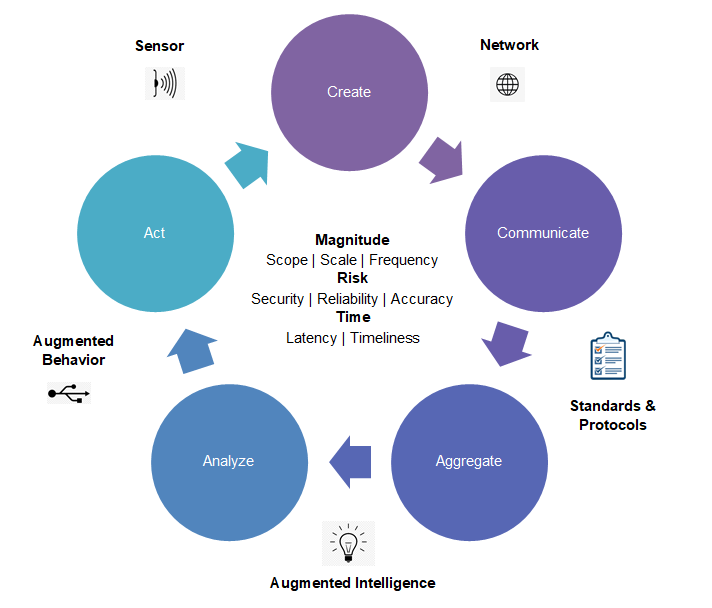Since the eruption of blockchain technology as a potential disruptive force to traditional business models, we have witnessed the adoption of this technology in the overhaul of existing applications to transform business and service delivery. The sports industry has not be left behind in the blockchain technology revolution.
In the last few years we have seen an increase in the incorporation of blockchain and IoT devices to traditional sports sectors like betting, anti-doping, fans-engagements and cultivation and utilization of big data. In this post, I'll cover my newest project PlayMaker Chain and how we will incoroprate both IoT and blockchain to revolutionize the sports industry.
What is PlayMaker Chain?

PlayMaker is one of the several clone cryptocurrencies that stemmed from VechainThor. PlayMaker “forked” off the VechainThor ledger in late 2018. Its a blockchain system optimized for sports science and related businesses.
The PlayMaker vision is to be a complement to VechainThor the silver to Thor’s gold. Instead of the approximately 10,000 transactions per second on the Thor network, the PlayMaker blockchain will handle up to 15,000 transactions per second instead.
While making transactions almost twice as fast, PlayMaker also modified the maximum number of coins that can be mined ensuring we stay committed to building a trustworthy decentralized business solution with a transparent information flow, collaboration, effectiveness and value high-speed transmission.
How It Works
As it stands, sports and transparency are not synonyms. Over time we have witnessed multiple lawsuits based around the unsavory practices in sponsorship contracts, transfers and tax evasions. The PlayMaker solutions are intended to enable various entities in sports to function in the most secure, transparent and fan-friendly way by specializing in supply chain management, the Internet of Things (IoT), and anti-counterfeiting.
By incorporating the PlayMaker network platforms into their infrastructures, users (corporations and individuals) will access the PlayMaker tokens that will be used to perform transactions. As it will be optimized to apply IoT technology all products and services will be tracked throughout the distribution process using network generated private keys. The distributed data storage characteristics of the PlayMaker blockchain network will be the key to improving traceability and transparency throughout the supply chain management.
The PlayMaker blockchain network can be summarized into these characteristics on which its reputation is built:
- Transactions are processed directly from peer to peer with fewer intermediaries, they will also be immutable and irrevocable. All transactions are also visible to authorized participants and traceable within the network ledgers.
- Both sides of the transactions are executed simultaneously as all ledgers are automatically updated. This limits how much time goes into the reconciliation work required.
- Resources used to validate transactions on the PlayMaker network are mainly computing power, combined with running on the proof-of-authority algorithm will cost less than traditional man power.
- Ours is an open-source technology, contributors interested in building a resilient network that does not have any single point of failure are always welcome to the team.
Consensus Algorithm
The proof-of-authority consensus model is optimized for system continuity while requiring low computational power yet has no requirement for communication between nodes to reach consensus. Without the computational competition, associated with PoW, PoS and DpoS, Authority Masternodes will have an equal opportunity to produce and validate blocks. Since users will be required to reveal their identity voluntarily prior to setting up an Authority Masternode on the PlayMaker blockchain.
It is expected that they will work in favor of the network growth and security when their identity and reputation are at stake. Essentially, the network will provide a balance between total centralization and total decentralization as a compromise to both worlds. This ensures that the system can perform multiple rounds of inter-code communications to get consensus.
Network Architecture
The blockchain and IoT fusion can and will be the formidable transformative technology that will underline the efficiency and innovation that will make up the baseline for the PlayMaker Network. For the concept to work, an entire infrastructure is deployed covering everything between the sensors, the network integration and augmented behavior.
The PlayMaker Information loop covers four layers:
- Sensors: These sensors, RFID and/or NFC chips, attached to people or things generate the data and trigger the flow of information. This layer will integrate a system that takes automated instructions from upstream and execute an action.
- Network: Using a series of hardware, software and messaging protocols, the PlayMaker networking equipment will communicate data from the sensor and connect it to the internet and the Blockchain.
- Standards and Protocols: As the core of the architecture, the standards of the PlayMaker protocol will manage the sensor and network elements; combined with smart contracts capabilities, raw data (transactions) are taken from downstream, analyzed and used for deriving actionable insights.
- Intelligence & Behavior: Post analytics, information derived from the IoT data is used to build applications and other services on the PlayMaker blockchain infrastructure.

Token & Node Economics
The PlayMaker economy consists of two coins. This is done to minimize the direct effects of the PMK token price actions on the network fees for users of the blockchain. For our enterprises and institutional users this guarantees a stable transaction fee, something that is currently not possible in for example other projects.
PlayMaker Token (PMK)
- Use Case: Store of Value and smart payment currency
- How To Get: PMK is currently not available on the open market. Strategic partners can buy from a dedicated pool when the network is launched.
PowerPlay (PWP)
- Use Case: Needed to interact with the blockchain for certain operations, like executing smart contracts, writing data to the blockchain and transferring tokens.
- How To Get: Users will generate Thor when owning PMK.
Using our traceable wallet, users can apply that wallet to become a Node. There are various types of nodes, which all have different benefits, functions, and requirements.
The nodes can be divided into two types:
- Authority Nodes: The authority nodes are used to validate all blockchain transactions. Authority nodes have the highest requirements, but also gives you access to the biggest benefits.
- Economy Nodes: The economic nodes are not validating blockchain transactions, but offer stability to the ecosystem and Provide benefits compared to non-Node owners. To get an economic node, a certain amount of PMK has to be placed in your PlayMaker mobile wallet. When users meet the minimum amount of PMK they can join the Node program by going to the Rewards tab in the mobile wallet.
To read all the technical details of the PlayMaker Chain, download and read the whitepaper here.
Conclusion
The sports industry is a complex ecosystem with many stakeholders including sports clubs, players, agents, regulators, financial service providers, technical experts, fans, advertisers and so on. As a solution PlayMaker is responsible for completing the blockchain deployment, developing and deploying smart contracts and providing standard API to the upper level applications such as our flagship Ticketing Application.